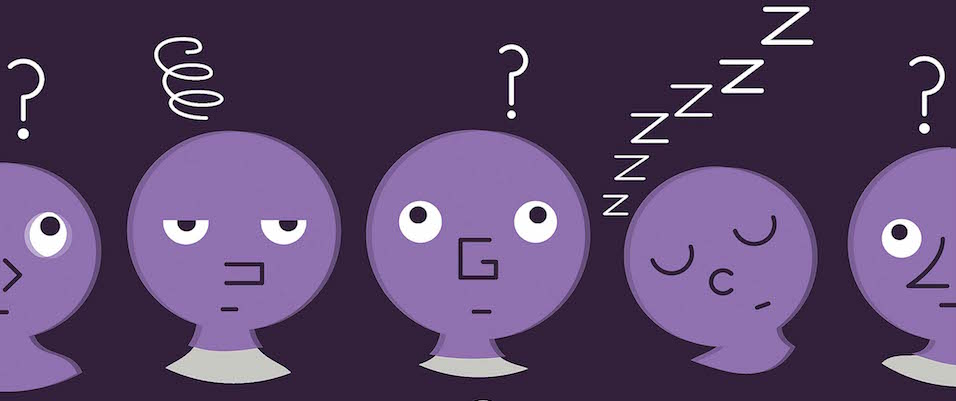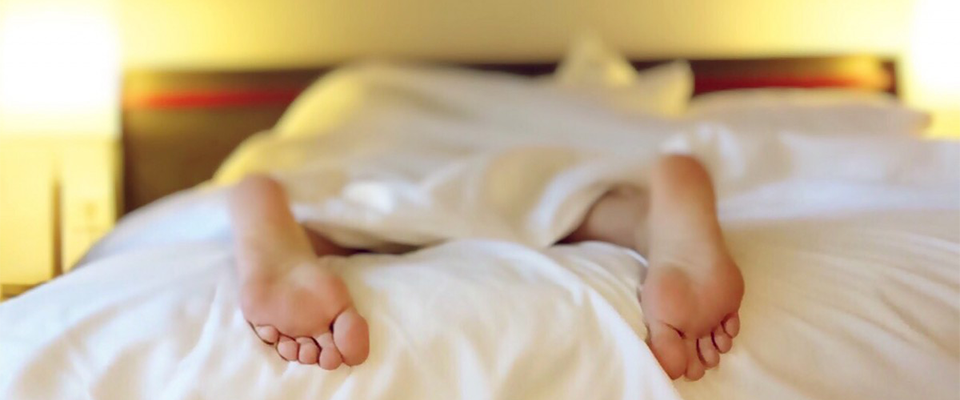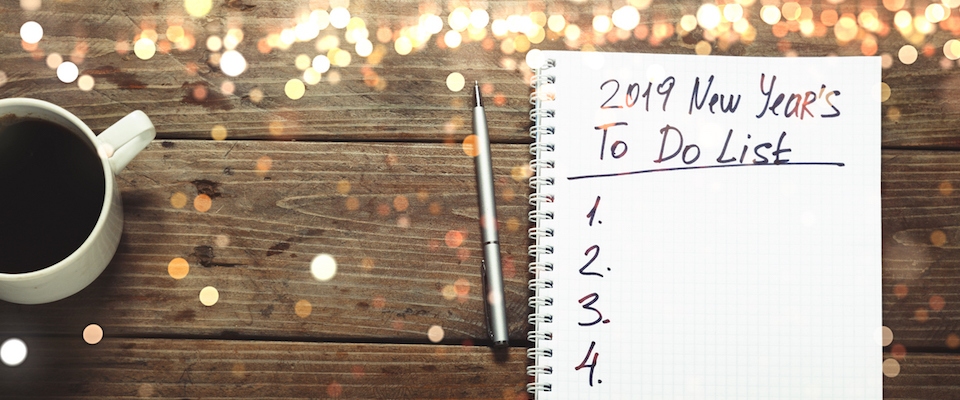Got a lousy night’s sleep? Feeling kinda grouchy? Turns out waking up on the wrong side of the bed won’t just make you cranky. It will make others seem that way, too. A 2015 study from the UC Berkeley Sleep and Neuroimaging Laboratory found that a single sleepless night can fundamentally alter the way we perceive others—making even the mellowest of fellows seem like the strangest of dangers.
In an experiment involving 18 healthy adults aged 18 to 30, researchers found that, when deprived of sleep for 24 hours, subjects struggled to effectively process facial expressions and identified a wider range of expressions as hostile than they had after a normal night’s rest.
It’s just one of many findings from the lab showing how fundamentally sleep—and the lack of it—affects our waking lives. And although it may not seem especially surprising or earth shattering on its own, this finding has enormous implications for the estimated 60 million Americans who struggle with insomnia.
As Andrea Goldstein-Piekarski, the lead author of the study, explains, “Imagine if you were to walk into a room filled with people and misinterpreted the neutral expressions that they had as hostile. It would not only influence how you would interact with them, but it could potentially also shade your whole day in a negative light.” She notes that the effects of sleeplessness are especially concerning in habitually sleep-deprived groups, such as soldiers, medical personnel, and police officers, for whom a misreading of social cues can sometimes have life-or-death consequences.

The Sleep Lab is a collection of windowless rooms in Tolman Hall, a few of which are dedicated to shut-eye, complete with full-sized beds, fluffy comforters and pillows, and the occasional computer workstation. In the research area, what look like elaborately wired swim caps hang from one wall. On desks, white foam heads are marked to show the proper placement of electrodes for accurate brain imaging.
Founded in 2007, the Sleep Lab is run by Cal professor and neuroscientist Matthew Walker, who last year said at a Smithsonian event that the West is in the throes of “a silent sleep-loss epidemic,” with Americans now averaging just six and a quarter hours of slumber per day. That’s far from the eight and a quarter hours our forebears logged in the early 1900s—a level Walker calls the “sweet spot.”
Those lost hours may be having an enormous impact on public well-being, especially in terms of mental health. In one of the Sleep Lab’s earliest published studies, researchers found that sleeplessness activates the amygdala (the part of the brain associated with anxiety, depression, and other psychiatric disorders), turning healthy subjects into emotional wrecks. As Walker told the Berkeley News Center in 2007, “It’s almost as though, without sleep, the brain had reverted back to more primitive patterns of activity, in that it was unable to put emotional experiences into context and produce controlled, appropriate responses.”
“Your reality is skewed by the way that your brain perceives it. But your memories are also skewed by that [perception],” says Sleep Lab researcher Bryce Mander. Bottom line: “The ability of the brain to hold on to memories is just deteriorating if you’re sleep deprived.”
But it’s not just the amygdala that is affected by sleep; so is the hippocampus, a part of the brain essential to the formation of new memories, and an area of special interest in the study of cognitive aging. In one experiment involving a group of subjects in their 20s, and another in their 70s, Sleep Lab researchers monitored fast-frequency sleep spindles—short bursts of brain activity that activate the hippocampus.
“If you have more of those fast-frequency spindles, you generally have better memory,” explains Sleep Lab researcher Bryce Mander—and not just better memory of what you studied the night before, but also a greater ability to learn new information the day after. Tellingly, the study found that in older subjects the density of prefrontal fast-frequency spindles was markedly reduced—by 40 percent or more.
In yet another Sleep Lab study, researchers found that people who don’t get enough deep, slow-wave (or non-REM) sleep have higher concentrations of beta-amyloid proteins. These proteins are one of the signature pathologies of Alzheimer’s disease, and researchers also found that these subjects performed worse on memory tests. In other words, the presence of beta-amyloid affects memory because it contributes to poor sleep, which, in turn, contributes to memory impairment.
The implications are serious. The goal of memory, says Mander, is adaptive. It helps you modify your future behavior based on past experience. But lack of sleep throws a wrench in the works. “Your reality is skewed by the way that your brain perceives it. But your memories are also skewed by that [perception].” Bottom line: “The ability of the brain to hold on to memories is just deteriorating if you’re sleep deprived.”
Though such results may seem disheartening to many a bleary-eyed soul, the good news is that sleep is what Walker calls a “treatable target.” In theory, at least, improved sleep is achievable and, given the health benefits, highly desirable.
But what about all of these high-functioning CEOs and hard-charging politicians who pull all-nighters and emerge bright-eyed and bushy-tailed for press conferences in the morning? They seem to be doing fine. Mander says people aren’t always as high-functioning as they think they are. “Whenever you bring them into the Sleep Lab, they’re shown they’re impaired and they don’t believe it—they don’t believe it at all, but it’s there.”
When it comes to sleep, says Mander, “Anytime you chronically restrict people, you’re going to impair their performance and well-being.”
Krissy Eliot is senior associate editor at California, and a poor sleeper.





















